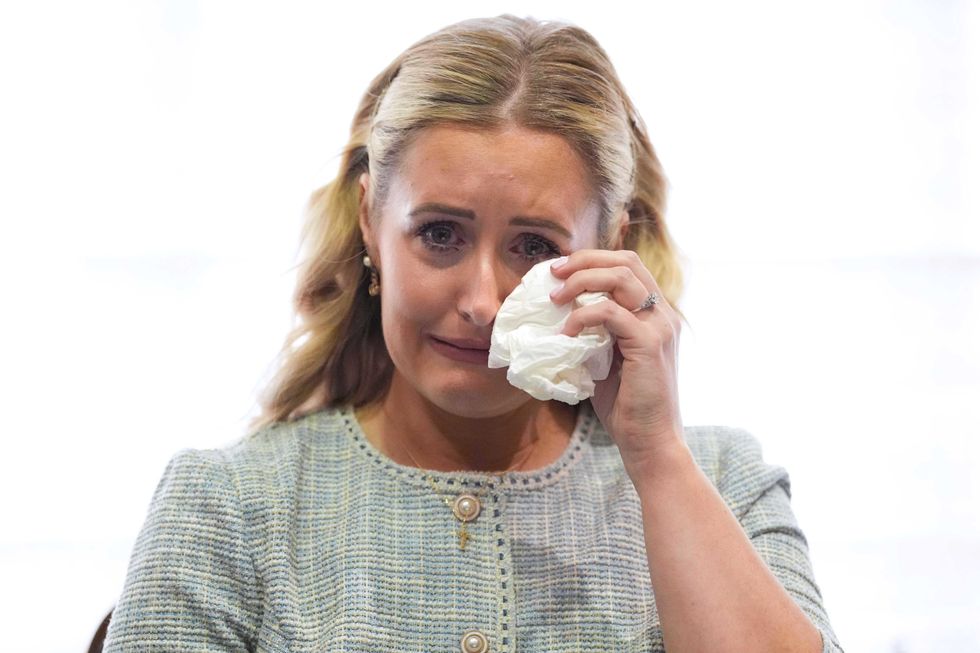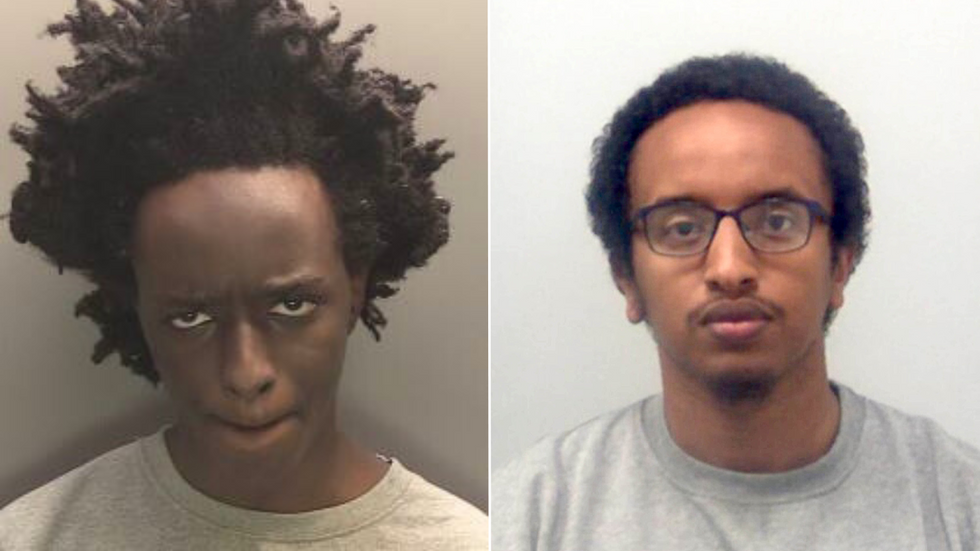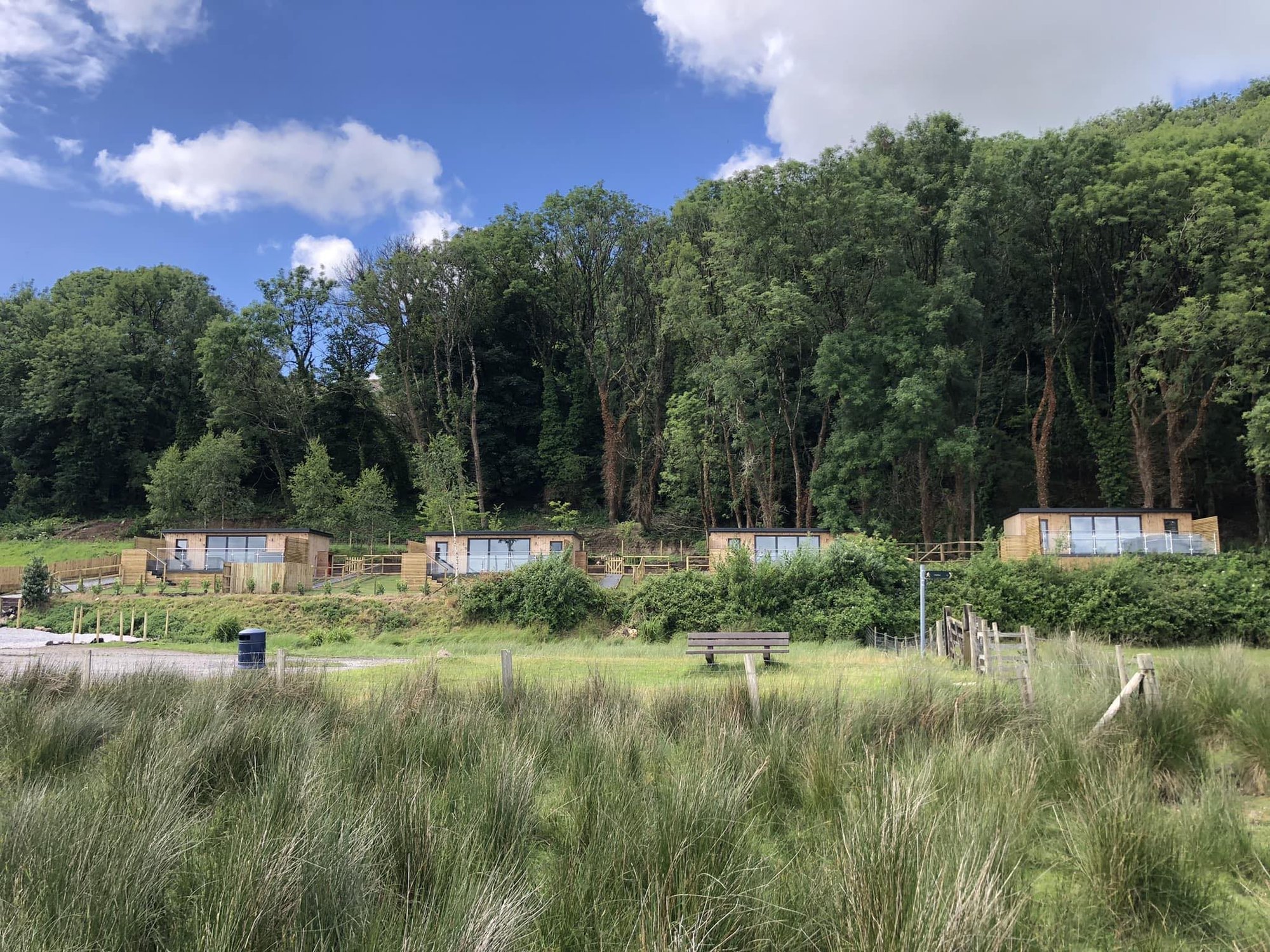Prevent anti-terror officers deemed David Amess killer a 'great person'

WATCH: The daughter of Sir David Amess, Katie Amess, outlines the failures of the Prevent programme which subsequently led to her father's murder
|GB NEWS
Ali Harbi Ali's case was dropped by counterterrorism officers after just one meeting
Don't Miss
Most Read
Trending on GB News
The killer of MP Sir David Amess was described as a "great person" before his case was dropped by counterterrorism officers.
Amess was murdered by Ali Harbi Ali, who stabbed him more than 20 times during a constituency surgery in Leigh-on-Sea in Essex at the end of 2021.
Just six years earlier, Ali had been referred to Prevent, a Government-led, multi-agency programme which aims to stop individuals becoming terrorists.
Seven sessions had been planned for Ali after he had been assessed as "needing further intervention" relating to views he had expressed saying music and interest on university student loans were a breach of Islamic law.
Despite this, Ali dropped off Prevent's programme after an official had met him just once in person at a McDonald's in early 2015 - and then deemed the issue dealt with.
Ali was described as a "pleasant and informed young man" by the official after the initial meeting, during which officials are "careful not to go heavy with people at first".
New disclosures have revealed that a counterterrorism case officer responded to the official's report a day later, stating Ali "seems to be a great person" who would benefit from extra PHSE (personal, social, health and economic) education.
However, comments made by Ali during a police interview after his arrest in 2021, as well as at trial, imply he had been deceiving Prevent officials, according to a new report by Lord Anderson, the scheme's commissioner.

Sir David Amess MP was murdered by Ali Harbi Ali during a constituency surgery in Leigh-on-Sea in Essex at the end of 2021
|PA
His report exposed serious failures, and has warned that following the failure to prevent Amess's murder and the Southport attacks, the Government's flagship counterextremism scheme needs to "up its game".
The report also revealed that the Home Office failed to provide evidence about Prevent's failings in Ali's case in previous reviews over the four years since the MP's murder.
Home Secretary Yvette Cooper sent a letter informing Amess's family of the details uncovered by Anderson's report, but the family say they were left "deeply hurt and angered by [its] utterly dismissive tone".
Anderson has suggested Prevent should continue to apply to dangerous individuals who have a fascination with extreme violence, even if they do not appear to have a fixed ideology.
TERROR THREATS ON BRITAIN'S SHORES - READ MORE:

PICTURED: Katie Amess, Sir David Amess's daughter. The murdered MP's family were left 'deeply hurt and angered by the utterly dismissive tone' used by Yvette Cooper in a letter
|PA
Widening the scheme marks a direct reversal of Sir William Shawcross's 2023 review of the programme, which said all referrals must have an "identifiable ideological element and terrorism risk".
Counter-extremism tsar Robin Simcox told the Home Affairs Committee this week that if Prevent were to shift its focus towards taking on more cases involved those with interests in extreme violence, it would mean the system would not "really [be] a counterterrorism programme any more".
Figures for 2023-24 have shown that Prevent sees its largest number of referrals over "vulnerability concerns" - even if there is no ideological or terrorism risk.
Following this, 19 per cent relate to "extreme right-wing" ideology, 18 per cent to "conflicted" ideology, and 13 per cent to Islamism.

Prevent failed regarding Southport murderer Axel Rudakubana (left) and Sir David Amess's killer Ali Harbi Ali (right)
| CPS/METROPOLITAN POLICEAlso in his report, Anderson vowed Prevent must "up its game in the online world", saying that the average age of individuals referred to the programme is now just 16.
Some 40 per cent of people referred to the programme are aged between 11 and 15, meaning they are "digital natives", Anderson's report said.
In response to the report, Counter Terrorism Policing senior national coordinator for Prevent and Pursue, Deputy Assistant Commissioner Vicki Evans, said: "We will now carefully reflect on the report and its recommendations, and continue to work alongside the Government, security services, wider policing and other partners to ensure that systems designed to keep the public safe from harm do exactly that."
GB News has approached the Home Office for comment.
More From GB News










